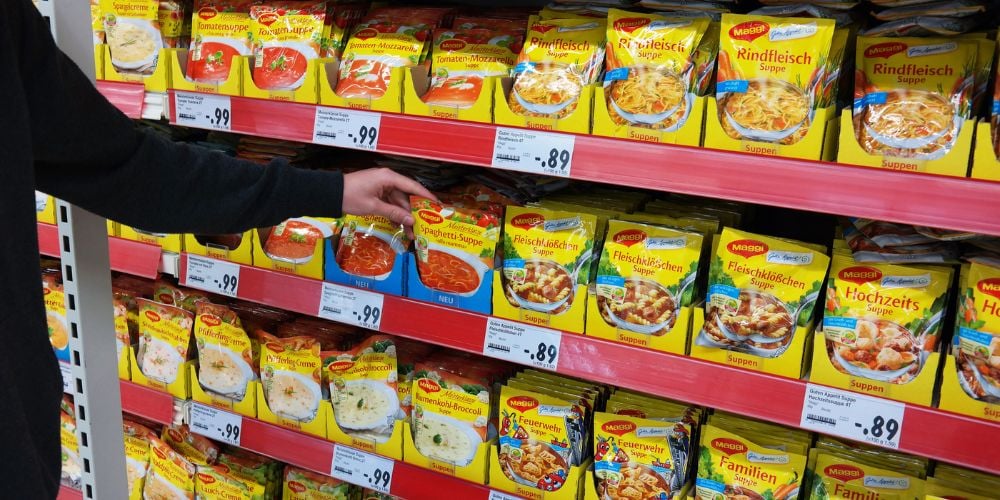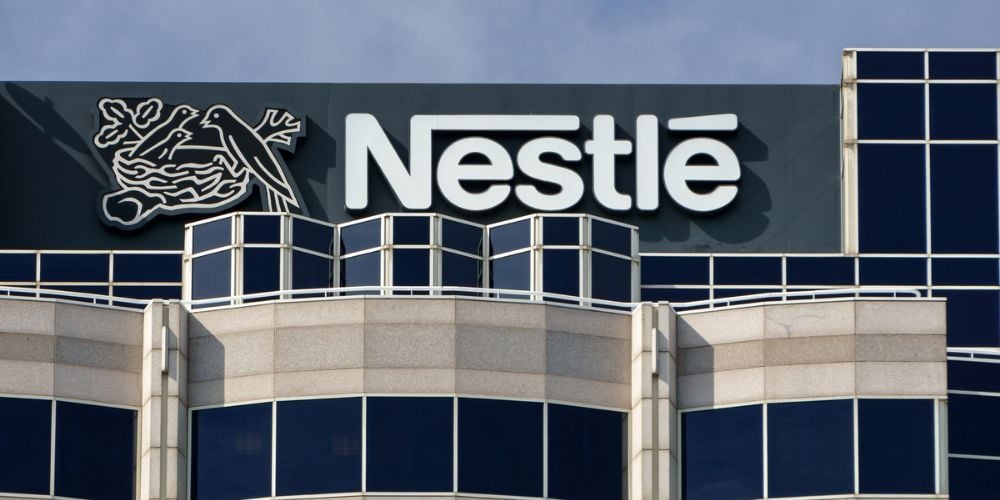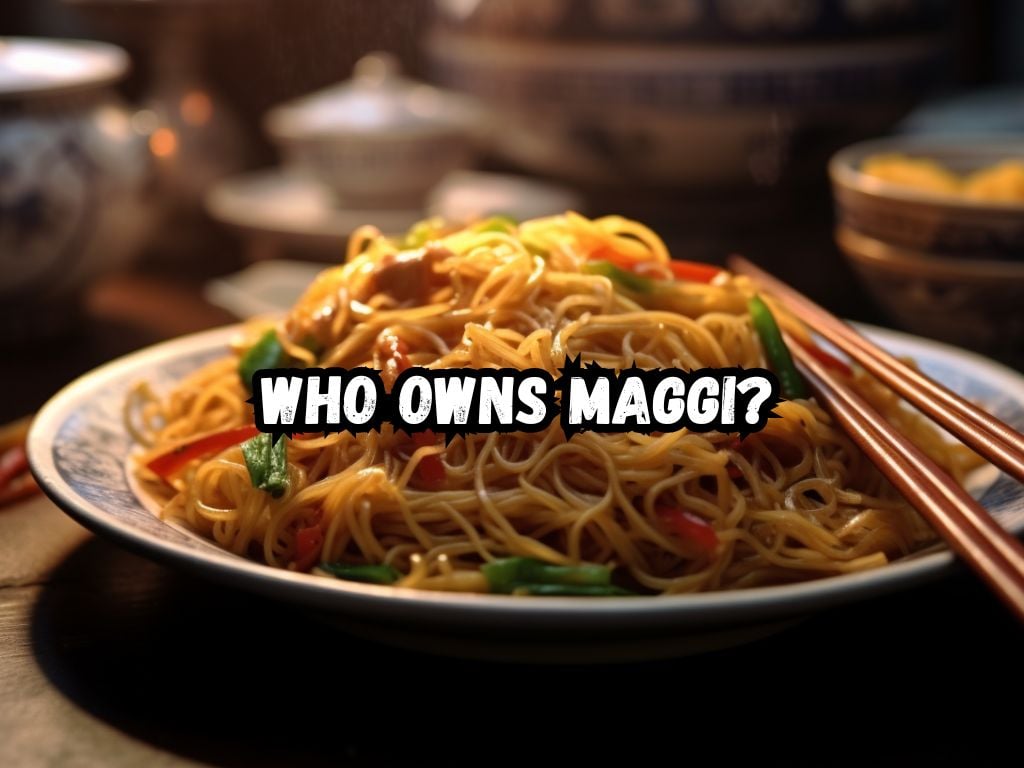Maggi, a household name synonymous with instant noodles and pre-packaged soup mixes, has become an integral part of many people’s lives across the globe. Have you ever wondered about who owns Maggi?
From its humble beginnings in a small Swiss town to its acquisition by Nestlé, Maggi’s ownership history is a fascinating story that highlights the brand’s growth and evolution over time.
Who Owns Maggi? The Legacy of Julius Maggi
Julius Maggi’s Vision
Julius Michael Johannes Maggi, the man behind the globally recognized Maggi brand, was born in Frauenfeld, Switzerland, in 1846. As a young entrepreneur, Maggi was driven by a vision to provide nutritious and affordable food options for working-class families.
Inspired by the health food movement of the late 19th century, he saw an opportunity to create products that would save time and still be wholesome.

The Establishment of Maggi Company
Maggi’s entrepreneurial spirit led him to establish the Maggi company in 1884. At that time, he focused on producing powdered pea and bean soups, aiming to deliver nutrition in a convenient, easy-to-prepare format.
The demand for Maggi’s products quickly grew, and the company soon expanded its range to include other products such as Maggi sauce and bouillon cubes. These products became instant hits and gained immense popularity, marking the beginning of Maggi’s journey to becoming a household name.
Commitment to Quality and Innovation
Maggi faced competition from other food manufacturers. However, Julius Maggi’s commitment to quality and his emphasis on scientific food production set his brand apart.
He believed in using the best ingredients and maintaining strict quality control, ensuring that Maggi products upheld his vision of providing nutritious and affordable food options for all.
The Birth of the Maggi Brand
Expansion and Global Recognition
Julius Maggi’s commitment to innovation and improving food solutions continued to drive the expansion of his brand. In 1886, just two years after the company’s founding, Maggi introduced the world to Maggi seasonings.
These liquid flavorings were made from a combination of vegetables and seasonings that enhanced the taste of various dishes, revolutionizing the way people seasoned their food. The success of Maggi seasonings solidified the brand’s position as a leader in the food industry.
International Presence
As the demand for Maggi products grew, the company expanded its operations and opened factories in different countries around the world. By the early 20th century, Maggi had firmly established itself as a global brand, known for its range of innovative food products that provided convenience without compromising on taste and quality.
Julius Maggi’s Contributions
Maggi Bouillon Cubes
Julius Maggi’s contributions to the food industry extended beyond the realm of instant soups and seasonings. In 1897, he introduced Maggi bouillon cubes, a product that revolutionized home cooking.
These cubes, made of concentrated meat extract and seasonings, provided a quick and easy way to add flavor to dishes, taking the guesswork out of creating delicious meals.
Fortified Food Products
Maggi’s commitment to addressing the nutritional needs of consumers also led to the development of fortified food products. In 1908, the company launched “Maggi Suppenwürze,” a concentrated vegetable extract that served as a nutrient-rich base for soups and sauces. This innovation reflected Maggi’s belief in providing wholesome, nutritious food to support the well-being of individuals and families.
The Acquisition by Nestlé
Strategic Move by Nestlé
In 1947, a turning point occurred in Maggi’s history when Nestlé, the Swiss multinational food and beverage company, acquired the Maggi brand.
The acquisition was a strategic move for Nestlé as it sought to expand its product range and strengthen its position in the global food market. For Maggi, the acquisition brought new resources and opportunities, enabling the brand to further expand its reach and impact.
The acquisition by Nestlé also brought Maggi under the umbrella of a company that shared similar values and commitments. Both Nestlé and Maggi prioritized quality, innovation, and nutrition, ensuring that their products met the highest standards.
This alignment in values helped maintain the integrity of the Maggi brand while benefiting from Nestlé’s extensive distribution network and market expertise.

Maggi Under Nestlé Ownership
Thriving and Innovating
Under Nestlé’s ownership, Maggi continued to thrive and innovate. The brand’s product range expanded to include a variety of instant noodles, sauces, seasonings, and ready-to-cook meal kits. Maggi’s instant noodles gained immense popularity, becoming a convenient and quick meal option for people of all ages.
Adapting to Changing Consumer Preferences
In recent years, Maggi has focused on adapting to changing consumer preferences and needs. The brand has introduced variations of its products, catering to specific dietary requirements, such as gluten-free and vegetarian options.
Maggi has also emphasized the use of natural ingredients and reduced sodium levels in response to growing health concerns.
Notable Milestones in Maggi’s Journey
Throughout its ownership journey, Maggi has witnessed several significant milestones that have shaped its evolution as a brand. These milestones include key acquisitions, groundbreaking partnerships, and successful product launches. Here are some notable highlights:
Acquisition of Maggi by Nestlé (1947): Nestlé’s acquisition of Maggi marked a new era for the brand, opening up opportunities for further expansion and growth.
Introduction of Maggi 2-Minute Noodles (1983): The launch of Maggi 2-Minute Noodles revolutionized the concept of instant noodles, providing a quick and convenient meal option for people around the world.
Collaboration with Indian celebrity chefs (2008): Maggi partnered with renowned Indian chefs to create unique recipes using Maggi products, inspiring consumers to experiment with their culinary skills.
Launch of Maggi Hot Meals (2013): Maggi Hot Meals introduced convenient, ready-to-eat meal solutions that catered to the busy lifestyles of consumers.
Conclusion
From its humble beginnings under the visionary leadership of Julius Maggi to its acquisition by Nestlé, Maggi’s ownership journey has been one of continuous growth and innovation.
Remaining true to its commitment to providing nutritious, convenient, and flavorful food options, Maggi has evolved into a globally recognized brand that has found a place in countless households around the world.
As Maggi continues to adapt to changing consumer needs, its legacy as a pioneer in the food industry remains strong.


 Tags:
Tags:










